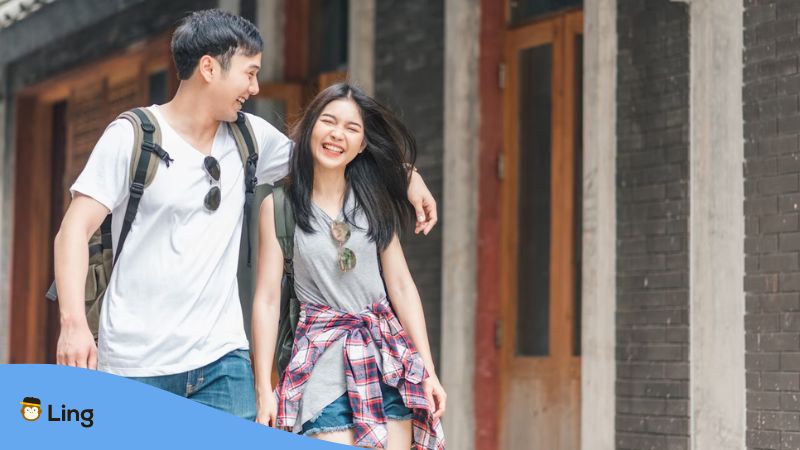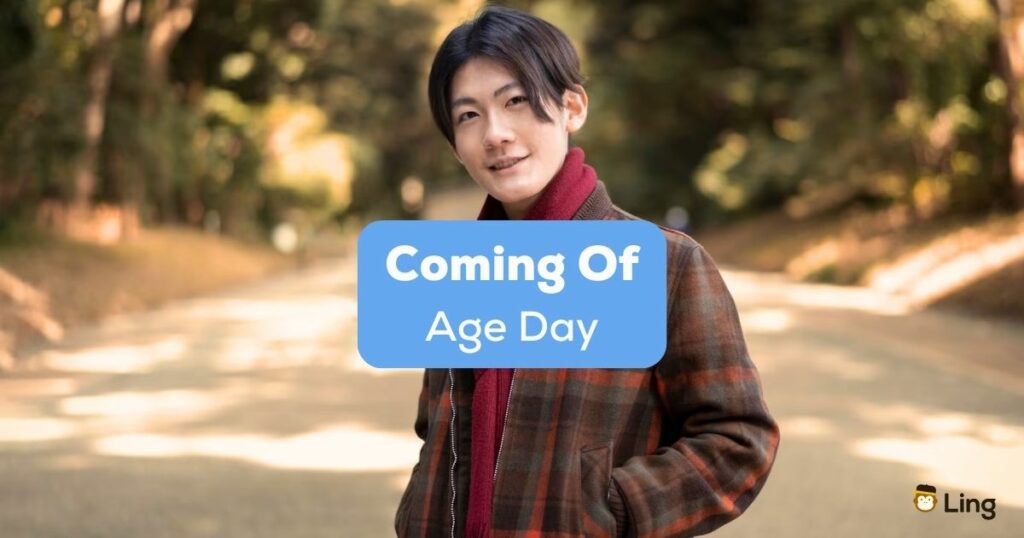Ever wondered how turning 19 feels in South Korea? Well, it’s more than just a birthday. It’s a nationwide celebration known as the Coming of Age Day.
Held every third Monday of May, it’s a day that marks the transition from adolescence to adulthood.
For Korean language learners, it’s not just about mastering the language, but also about understanding Korean culture.
Think about it. You’re 19, and suddenly, you’re not just older but an adult in the eyes of society. It’s a day filled with tradition, modernity, and a whole lot of excitement.
But what makes this day so special? Let’s dive into the heart of this particular Korean celebration.
What Exactly Is Coming Of Age Day In Korea And Its Origins?
In Korea, turning 19 is a milestone. It’s not just about getting older. It’s about stepping into adulthood.
This transition is celebrated as 성년의 날 (Seongnyeon-ui Nal), or the Coming of Age Day. This event, held every third Monday of May in the Korean calendar, is a nationwide recognition of young people entering adulthood.
But what’s the story behind this particular event?
The first recorded celebration of this event dates back to the 10th century during the Goryeo Dynasty.
In 965, King Gwangjong gifted the crown prince an outfit reserved for male adults, following Chinese tradition.
This marked the prince’s transition into adulthood and set a precedent for future coming-of-age ceremonies.

What Legal Rights And Responsibilities Come With Adulthood In Korea?
Becoming an adult in Korea isn’t just symbolic. It brings a wave of legal rights and responsibilities. Let’s take a closer look:
- Right to Vote (투표권 – TuPyoGwon): Now, young adults can vote. They have a voice over the Korean government in shaping the country’s future.
- Right to Drive (운전 권리 – Unjeon Gwonli): Driving? Yes, they can. With adulthood comes the right to drive.
- Right to Drink and Smoke (음주 및 흡연 권리 – Eumju Mit Heubyeon Gwonli): Alcohol and tobacco? They’re on the list too. It’s a highlight of the Coming of Age Day celebrations.
- Right to Marry (결혼 권리 – Gyeolhon Gwonli): Marriage without parental consent? That’s possible now.
- Legal Responsibility (법적 책임 – Beopjeok Chaegim): With adulthood comes accountability. They’re legally responsible for their actions.
- Mandatory Military Service for Men (남성의 의무적 군복무 – Namseong-ui Uimujeok Gunbokmu): For young men, adulthood means they’re eligible for Korea’s compulsory military service.
These rights and responsibilities aren’t just a list. They’re a rite of passage, a step into a new phase of life. They symbolize the transition into adult society.
What Are The Ceremonies On The Coming Of Age Day?
The Coming of Age Day in Korea is a vibrant mix of ceremonies. Each one is unique, filled with cultural exchanges. Let’s dive in.
- Gwallye Ceremony (관례): This is a significant event for young men. Their hair is tied up in a topknot, or 상투 (Sangtu). They start wearing adult male clothing. It’s a symbol of their transition into manhood.
- Gyerye Ceremony (계례): For young women, their hair is styled into a bun, a 장머리 (Jangmeori), and secured with a hairpin (비녀 – Binyeo). It’s a symbol of their step into womanhood.

How Are The Coming Of Age Day Celebrations In Modern Times?
In modern times, Coming of Age Day in Korea has evolved, but it still retains its traditional roots. It’s a day filled with joy, anticipation, and a sense of responsibility.
Young adults get three gifts from friends. A kiss, a rose, and perfume. They symbolize youth and the sweet scent of adulthood.
But it’s not just about personal gatherings. Public ceremonies are a big part of the day.
Take Seoul’s Namsangol Hanok Village, for example.
Young adults, including foreigners, gather for a traditional Coming of Age ceremony. They wear Hanbok, the traditional Korean clothing. They learn about the customs of adulthood.
The ceremony starts with a hair-changing ritual. Men tie their hair into topknots and wear a traditional hat, a gat (갓). Women style their hair into a chignon bun (시뇽), secured with a binyeo (비녀), a jade hairpin.
Next up, the chorye (초례). It’s a lesson on how to drink alcohol properly. But it’s time-consuming, so tea often replaces alcohol.
The ceremony ends with the suhunrye (수헌례). It’s a pledge to be a mature adult. After the pledge, they’re full-fledged adults.
So, modern Coming of Age Day in Korea? It’s a mix of Korean traditions and contemporary practices. It’s a memorable step into adulthood.
Commonly Used Words On Adulthood Day
Language is a powerful tool. This is especially true when exploring cultural events like Korea’s Coming of Age Day.
To help you navigate this celebration, here are some commonly used Korean words related to this event, arranged in alphabetical order:
These words will give you a deeper understanding of the Coming of Age Day. They’re more than just vocabulary. They’re a glimpse into the heart of this special celebration.
Learn Korean And 60+ Languages With Ling!
So, we’ve journeyed through the vibrant celebration of Korea’s Coming of Age Day. It’s a unique blend of tradition and modernity that marks a significant milestone in a young person’s life.
Along the way, we’ve also picked up some useful Korean vocabulary that brings us closer to the heart of this special day.
But why stop at just one cultural event or one language?
With the Ling app, your exploration doesn’t have to end here. This app offers language learning resources for over 60+ languages, not just Korean.
Whether you’re a beginner or an advanced learner, the Ling app has got you covered. It’s designed to make language learning fun, engaging, and effective.
So, are you ready to dive deeper into the world of languages and cultures?
Download the Ling app from Google Play or the App Store today. Let’s continue this journey together!



































































